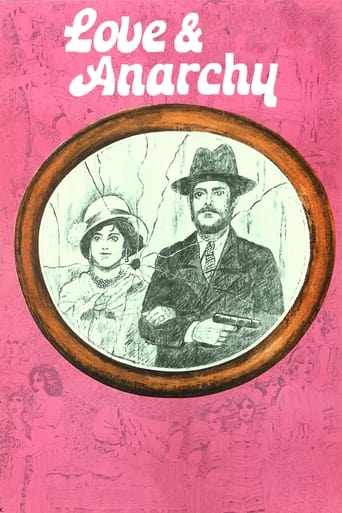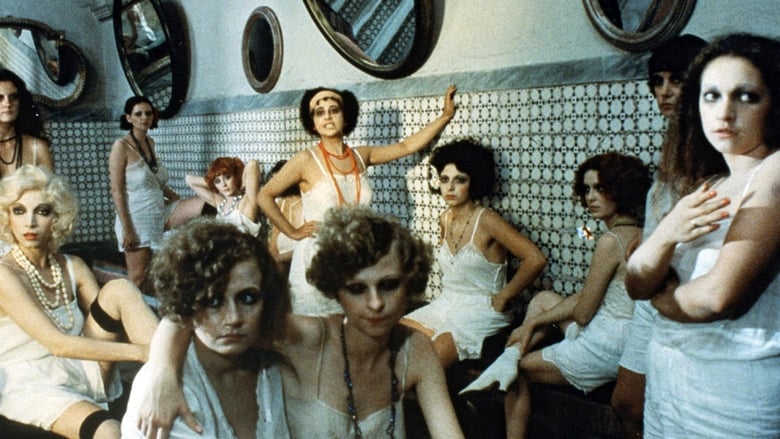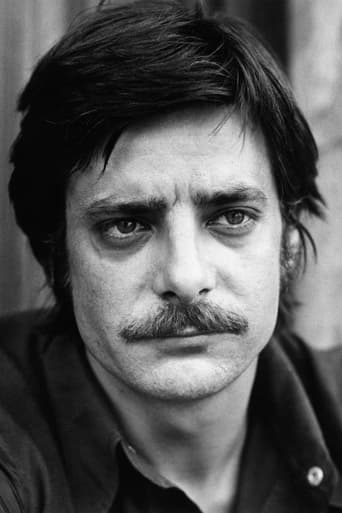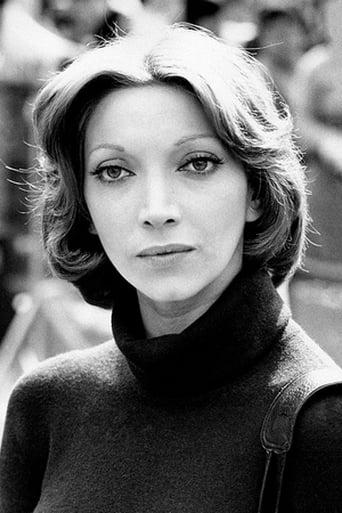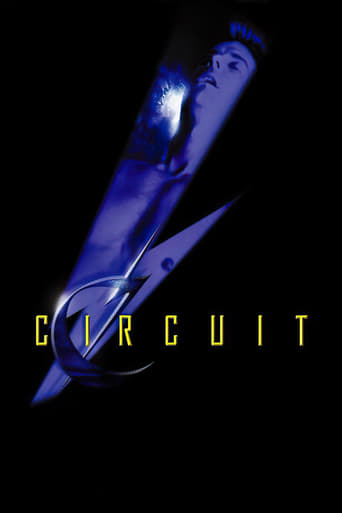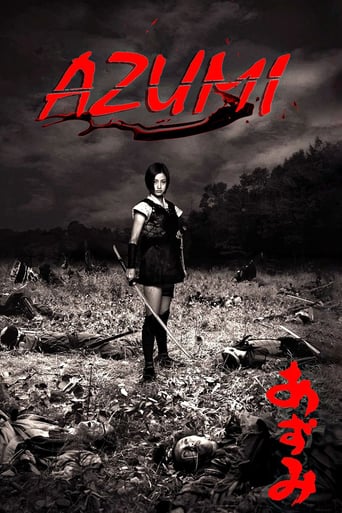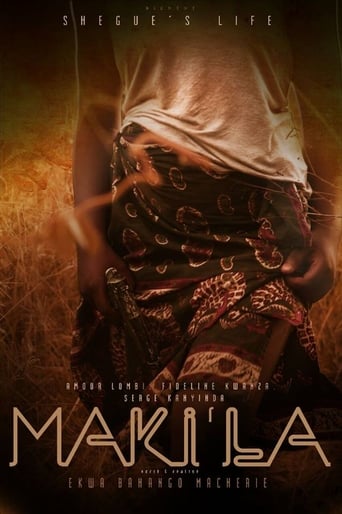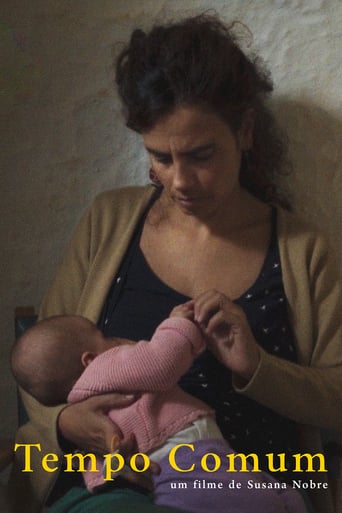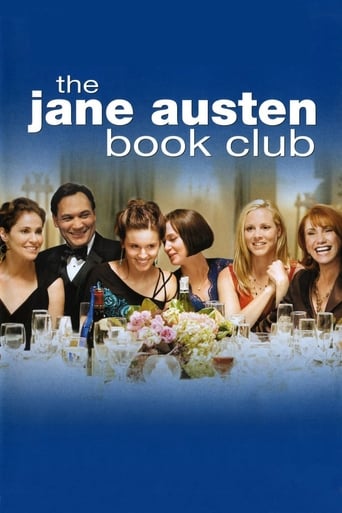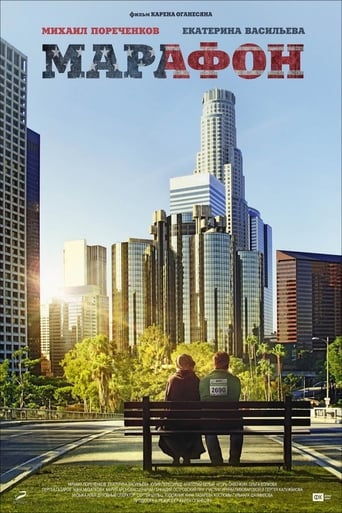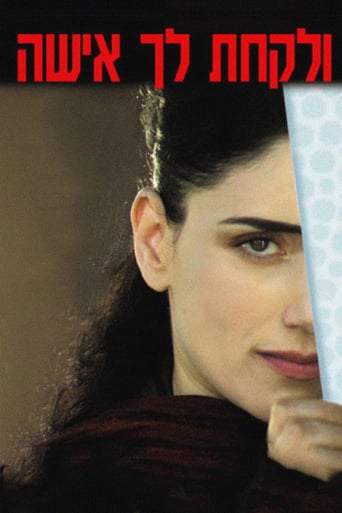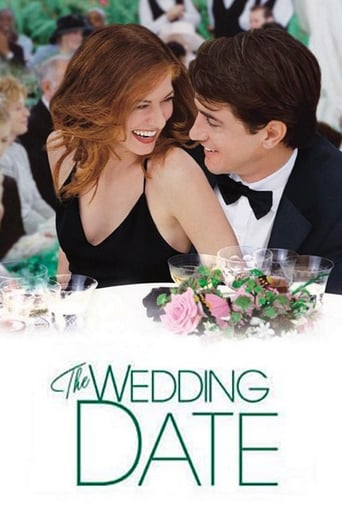Love and Anarchy (1973)
Set in Fascist Italy before the outbreak of World War II, the story centers on Tunin, a farmer turned anarchist who stays in a brothel while preparing to kill Benito Mussolini. There he falls in love with one of the whores.
Watch Trailer
Free Trial Channels
Cast


Similar titles
Reviews
In truth, there is barely enough story here to make a film.
It isn't all that great, actually. Really cheesy and very predicable of how certain scenes are gonna turn play out. However, I guess that's the charm of it all, because I would consider this one of my guilty pleasures.
It’s fine. It's literally the definition of a fine movie. You’ve seen it before, you know every beat and outcome before the characters even do. Only question is how much escapism you’re looking for.
Easily the biggest piece of Right wing non sense propaganda I ever saw.
Giannini at his best , a cult wertmuller movie that has been forgotten but it's a very good movie not only for Italian public but also for cinema lovers of all genres. it's the story of a poor man , Tunin which he must kill Mussolini during a ceremony. So he stayed for a couple of days in a house where there are women that offer sexual lends by paying. Tunin will fall in love with two of them and that will be negative for his mission. The excellent acting and the lina wertmuller's directing made this film a masterpiece and a realistic portrait of Italy of the '30. Giancarlo Giannini and Mariangela Melato are really wonderful and they show that Italian acting is at American level
Rather than contend for film with the longest title, "Film of Love and Anarchy (or At Ten o'clock This Morning in Via dei Fiori in the Infamous House of Prostitution)" is better known by the more manageable "Love and Anarchy". This 1973 Lina Wertmüller thriller is a hard first watch because there is no suspense to grab the viewer and hook them into the story. I was only able to handle about 30 minutes at a time, not because it was unpleasant but because I was too uninvolved in the story to ignore distractions and interruptions. But while it withholds most of its appeal from the initial viewing, it yields something new each time it is viewed."Love and Anarchy" is more an expressionistic opera than a realistic thriller. Imagine "Cabaret" starring Charlie Chaplin's "Little Tramp" and you will have a good idea of its style. It's main theme sneaks up and surprises you. U.S. viewers, dimly aware of the great depression and World War Two, suffer a complete cultural disconnect regarding the continuing legacy of fascism in Italy and Germany. Meaning that anti-fascist political messages are embedded in almost all post-war Italian cinema. But Wertmüller's "Love and Anarchy" has the broader theme of anti-extremism, taking shots at those who make major sacrifices out of perverted idealism and a lack historical perspective. The film begins with its main character Tonino (Giancarlo Giannini) at a turning point in his life, the execution of an older relative for political subversion. After viewing the body on display in what would otherwise by an idyllic rural setting, Torino is inspired to take over what he perceives as his relative's mission, the assassination of Benito Mussolini. Tonino goes to Rome and links up with his anarchist contact, a highly sought after call girl named Salomè (another Wertmuller regular Mariangela Melato), her brothel is popular with the Fascists and Mussolini's head of security, an arrogant blow-hard named Spatoletti (Eros Pagni), is especially fond of Salomè. Tonino and young call girl Tripolina (Lina Polito) soon fall in love which serves to greatly complicate his mission.I watched the widescreen version of the film on the Fox Lorber DVD, and contrary to several other comments I found no problems with the film transfer. My guess is that these refer to the variation in color tone as the film cuts between characters, but this is a deliberate effect by Wertmüller's. She lights each face differently to convey the character's motivation. The uncomplicated Torino is given natural lighting, the political Salomè is tinted red, and the disillusioned Tripolina is in shadow. These combine with bold colors, a surreal score, and acute camera angles that exaggerate elements and play with scale in many of the frames. The everyday scenes in the brothel are especially good, combining the audacious with the darkly comic. The best is a carnival-like montage to music showcasing the start of a busy day of business for the prostitutes and their eager customers. In almost any other film Pagni would steal the whole thing with his overplayed performance but Melato matches him line for line. This contrasts nicely with the more subtle and nuanced performances of Giannini and Polito. Polito is very effective when Wertmüller makes use of her eyes in several close-ups.There is much overwrought melodrama as Wertmüller uses a farcical tone to illustrate that the Fascists and their opposition are linked by a common hypocrisy and a shared perversion of idealism. Ironically the film is at its best during its quiet scenes such as Tornio and Tripolina's stroll through the plazas of the city. This is an important film with an original message, fine performances from the entire ensemble, and really slick film-making techniques.Then again, what do I know? I'm only a child.
Directed by Lina Wertmüller in 1973, "Love & Anarchy" is an indisputable classic. Universally identifiable and immediately entertaining, Wertmüller carries her audience into the mind and times of Turin, a peasant in 1930s Italy. When one of his close friends and idols is killed by fascists, Turin becomes obsessed with anarchist ideals he hardly understands, and sets off to exact an awful vendetta--the assassination of Italian dictator Benito Mussolini. The plan gets off-track when Turin falls in love with Tripolina, a prostitute in the bordello where he lives in the days leading up to the assassination attempt. We soon learn that Tripolina returns his love, and the tragic stage is set. Knowing full well that the assassination attempt, successful or not, will surely mean his death, Turin is suddenly gripped by fear. When all he had at stake was a quiet life on the farm, he was glad to give it up for a chance at changing the quality of life for his peasant countrymen. But now, having tasted the happiness love can afford, can Turin really carry through with this suicidal act? Can he truly give up his life for a belief he once thought was worth dying?"Love & Anarchy" is a brilliant study of turmoil and human testing in the face of insurmountable odds. It begs the question--is it better to bow and live, or stand up and die? How much can a people be crushed before someone makes a sacrifice for the betterment of society? Whose responsibility is it? And on a grander scale, is it better to live happily, contented by love or family, and leave the world untouched, or to attempt real change by sacrificing everything in exchange for it? "Love & Anarchy" poses all these questions, but it offers no easy answers.Wertmüller's favorite actor, Giancarlo Giannini, plays the peasant boy, Turin, with beautiful humility. He wordlessly portrays infinite subtleties of emotion with body language and facial expression alone. Giannini has the face of a silent movie actor, and in fact was touted as a new Chaplin in the 1970s. Playing opposite him as the prostitute Salome is Mariangela Melato, who viewers may recognize from Wertmüller's "Swept Away." She, too, delivers a wonderful performance. The style and pacing of the film are excellent. Cinematographer Giuseppe Rotunno captures Rome in a gorgeous, yet unobtrusive manner.In "Love & Anarchy," Wertmüller doesn't pull any punches. As par usual, she lets the politics of her movie decide the fate of its characters, and tragedy ensues. One must admire her for making an extraordinarily brave and beautiful film. She exhibits how powerful and effective a tragic story can truly be in exploring the more complex questions of life.
The well-regarded director Wertmuller made this movie which is a slow study into how brutality and violence can be saved my love in my opinion. It is very operatic which is how she chose to attack it. The direction, I can say is flawless but the movie feels incomplete. First, I am more the director who uses visual images rather than hammy stagey dialogue to tell their stories. Carnini is the only actor who does not use a pantomime, overexagerrated style in the movie until the very end, while everybody else does. It softens the impact of the movie as it is the quieter moments that carry real weight. The style of direction is very narchiac with wonderful wide shots and good editing creating an effigy of exuberance over the picture. Most of the picture set in an italian bordello where the fascists of italy stay is a place for both love between carnini and pesilamo. Images are beautiful, and certain individual scenes work while others don't. We are left with a great understanding of what love must feel like but the brutality of man is never explained. It esssentially sets up the theory that all fascists are naturally evil. The ending tells us it is the stoty of one man while the movie sets it up as the story of every man. This the best explanation I can give without speaking too much about its plot. Wertmuller was much better in Swept away and seven beauties. But for an introduction to Wertmuller, and arty Italian cinema of the sixties and seventies which dealt very operaticly with evils of fascism.

